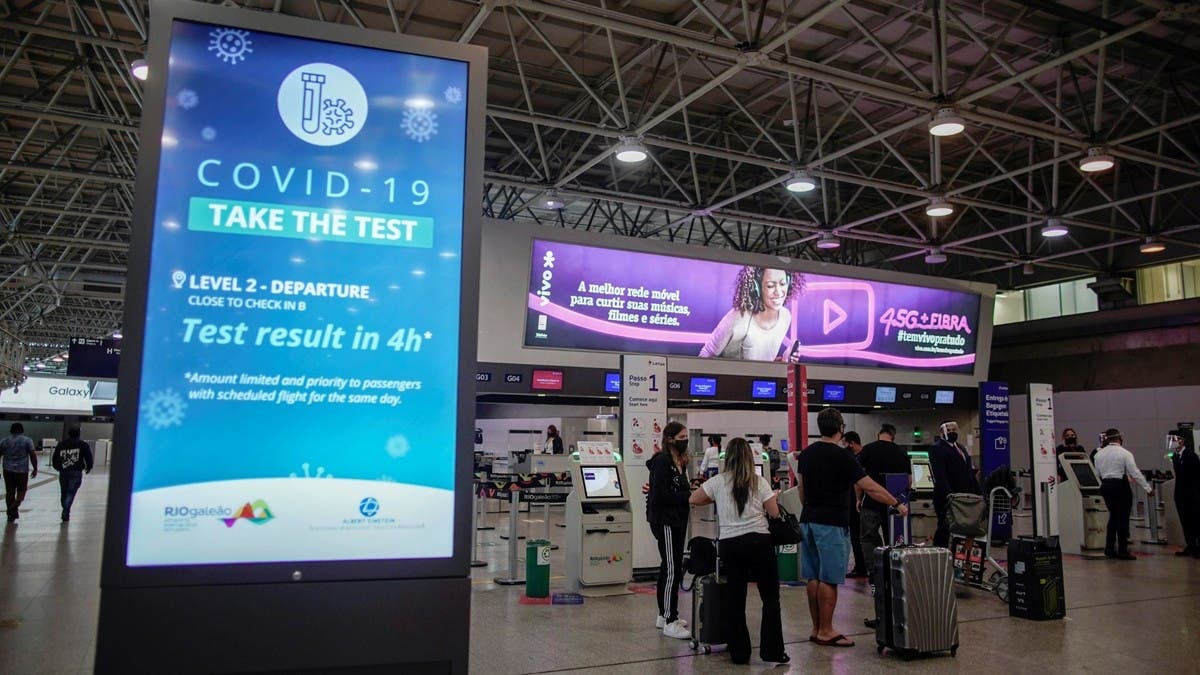Brazil and Japan joined the rapidly widening circle of countries to report cases of the omicron variant Tuesday, while new findings indicate the mutant coronavirus was already in Europe close to a week before South Africa sounded the alarm.
The Netherlands' RIVM health institute disclosed that patient samples dating from Nov. 19 and 23 were found to contain the variant. It was on Nov. 24 that South African authorities reported the existence of the highly mutated virus to the World Health Organization.
That indicates omicron had a bigger head start in the Netherlands than previously believed.
For more coronavirus news, visit our dedicated page.
Together with the cases in Japan and Brazil, the finding illustrates the difficulty in containing the virus in an age of jet travel and economic globalization. And it left the world once again whipsawed between hopes of returning to normal and fears that the worst is yet to come.
The pandemic has shown repeatedly that the virus "travels quickly because of our globalized, interconnected world,” said Dr. Albert Ko, an infectious disease specialist at the Yale School of Public Health. Until the vaccination drive reaches every country, "we’re going to be in this situation again and again.”
Brazil, which has recorded a staggering total of more than 600,000 COVID-19 deaths, reported finding the variant in two travelers returning from South Africa — the first known omicron cases in Latin America. The travelers were tested on Nov. 25, authorities said.
Japan announced its first case, too, on the same day the country put a ban on all foreign visitors into effect. The patient was identified as a Namibian diplomat who had recently arrived from his homeland.
France likewise recorded its first case, in the far-flung island territory of Reunion in the Indian Ocean. Authorities said the patient was a man who had returned to Reunion from South Africa and Mozambique on Nov. 20.
Much remains unknown about the new variant, including whether it is more contagious, as some health authorities suspect, whether it makes people more seriously ill, and whether it can thwart the vaccine.
Dr. Anthony Fauci, the United States' top infectious disease expert, said much more will be known in the next several weeks, and "we'll have a much better picture of what the challenge is ahead of us.”
In the meantime, a WHO official warned that given the growing number of omicron cases in South Africa and neighboring Botswana, parts of southern Africa could soon see infections skyrocket.
“There is a possibility that really we’re going to be seeing a serious doubling or tripling of the cases as we move along or as the week unfolds," said Dr. Nicksy Gumede-Moeletsi, a WHO regional virologist.
Cases began to increase rapidly in mid-November in South Africa, which is now seeing nearly 3,000 confirmed new infections per day.
Before news of the Brazil cases broke, Fauci said 226 omicron cases had been confirmed in 20 countries, adding: “I think you’re going to expect to see those numbers change rapidly."
Those countries include Britain, 11 European Union nations, Australia, Canada, Britain and Israel. American disease trackers said omicron could already be in the U.S., too, and probably will be detected soon.
“I am expecting it any day now,” said Scott Becker of the Association of Public Health Laboratories. “We expect it is here.”
While the variant was first identified by South African researchers, it is unclear where and when it originated, information that could help shed light on how fast it spreads.
The announcement from the Dutch on Tuesday could shape that timeline.
Previously, the Netherlands said it found the variant among passengers who came from South Africa on Friday, the same day the Dutch and other EU members began imposing flight bans and other restrictions on southern Africa. But the newly identified cases predate that.
NOS, the Netherlands’ public broadcaster, said that one of the two omicron samples came from a person who had been in southern Africa.
Belgium reported a case involving a traveler who returned to the country from Egypt on Nov. 11 but did not become sick with mild symptoms until Nov. 22.
Many health officials tried to calm fears, insisting that vaccines remain the best defense and that the world must redouble its efforts to get the shots to every part of the globe.
Emer Cooke, chief of the European Medicines Agency, said that the 27-nation EU is well prepared for the variant and that the vaccine could be adapted for use against omicron within three or four months if necessary.
England reacted to the emerging threat by making face coverings mandatory again on public transportation and in stores, banks and hair salons. And one month ahead of Christmas, the head of Britain's Health Security Agency urged people not to socialize if they don’t need to.
After COVID-19 led to a one-year postponement of the Summer Games, Olympic organizers began to worry about the February Winter Games in Beijing. Chinese Foreign Ministry spokesperson Zhao Lijian said omicron would “certainly bring some challenges in terms of prevention and control.”
World markets seesawed on every piece of medical news, whether worrisome or reassuring. Stocks fell on Wall Street over virus fears as well as concerns about the Federal Reserve's continued efforts to shore up the markets.
Some analysts think a serious economic downturn will probably be averted because many people have been vaccinated. But they also think a return to pre-pandemic levels of economic activity, especially in tourism, has been dramatically delayed.
For the latest headlines, follow our Google News channel online or via the app.
Read more:
WHO warns against blanket travel bans over Omicron coronavirus variant
How South African scientists spotted the Omicron COVID-19 variant
Omicron poses ‘very high’ global health risk, countries must prepare: WHO

 World3 years ago
World3 years ago
 World3 years ago
World3 years ago
 Business1 year ago
Business1 year ago
 Entertainment7 years ago
Entertainment7 years ago
 World7 years ago
World7 years ago
 Entertainment7 years ago
Entertainment7 years ago






